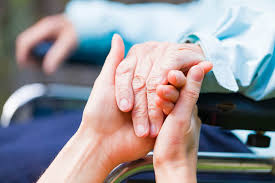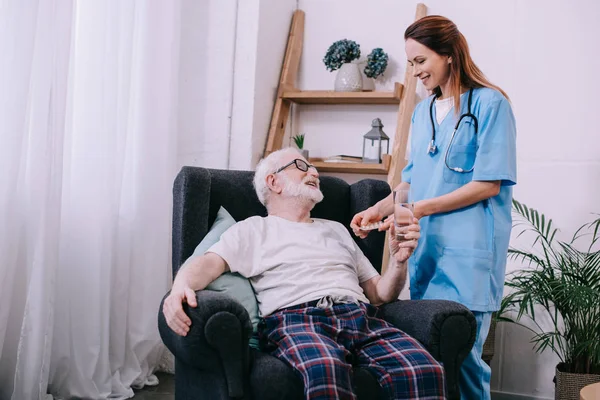St. Anthony’s Hospice is fortunate to receive a very informative quarterly newsletter entitled “Quality of Life Matters.” This latest publication has an article titled “Seriously Ill Patients Want Most to be Heard and to Participate in Care Decisions, National Survey Finds” and we had to share it with you!
SERIOUSLY ILL PATIENTS WANT MOST TO BE HEARD AND TO PARTICIPATE IN CARE DECISIONS, NATIONAL SURVEY FINDS
“Patient-physician communication and collaboration were the two most important aspects of high-quality serious illness care identified by U.S. adults. Patients want to know they are listened to and understood, according to a survey and qualitative research conducted in 2021 and released in October by the Massachusetts Coalition for Serious Illness Care.
“People are telling us loud and clear what they want from the healthcare system: to be heard,” says Atul Gawande, MD, MPH, Coalition co-chair and surgeon at Brigham and Women’s Hospital, Boston.
However, patients with serious illness, racial/ethnic minorities, and people with lower income levels were more likely than their counterparts to feel their clinicians did not understand their priorities and to leave a medical visit feeling uncertain about the next steps in their care, the survey found.
In a multi-phase project aimed at improving care for people with serious illness and their families, Coalition researchers surveyed a nationally representative sample of 1,854 adults, with oversampling for Blacks, Hispanics, people with low income, and seriously ill or disabled people and their caregivers. Subsequently, researchers engaged with 580 adults from across the nation and aligned with the U.S. census in online community forums. Asian adults were also included in the survey, but the sample size was too small to support confident interpretation, the authors of the report note.
Overall:
- 20% of survey respondents had a serious illness diagnosis and reported that performing their normal levels of work or activity had been harder in the past year.
- 87% of all respondents said it is important for clinicians to know their patients’ priorities and what is important to them; only 3% felt this was not at all important.
- A smaller percentage of seriously ill patients compared with patients without serious illness believed their clinicians understood their life priorities (61% vs 71%), health goals (69% vs 79%), or what activities brought them joy and meaning (52% vs 62%).
Definition of quality care
Researchers found that the definition of quality care resonating the most among all participants was “Good quality care is collaborative with me.” Participants felt this included having clinicians who took time to learn about them so their healthcare would be the best possible fit.
For Black and Hispanic participants, the best definition was “Good quality care is kind, empathic, patient, non-judgmental, treating me (and everyone) as important and worthy of care.” This definition also ranked highly across all demographic groups.
From among a dozen theoretical clinician-conversation statements, forum participants in the qualitative research phase overwhelmingly selected “We’ll figure this out together” as being what mattered most for quality care. The top five statements that resonated as most important to them were:
- “We’ll figure this out together.”
- “I will make sure you really understand how each option will help you and what side effects or downsides it might have.”
- “I’ll help you navigate through the choices ahead.”
- “You’re the expert on what’s right for you, so the more you share, the more I can support you.”
- “I need you to help me understand who and what really matters to you – your favorite activities, the people you love, your faith and culture.”
Areas in need of improvement:
- 19% of patients with serious illness say they often leave a healthcare visit feeling unsure about the encounter, outcomes, or what to do next compared with 9% of those without serious illness.
- Similarly, higher percentages of people with disabilities (19% vs 9%), of non-White race/ethnicity (15% vs 9%), and of those in the lowest income quartile (17% vs 7%) also reported feeling uncertain about the import of the visit or what to do next compared with their counterparts.
- Despite feeling uncertain following a recent medical visit, patients with serious illness more often reported they felt afraid to speak up or ask questions during a visit lest it impact their medical care than did those without serious illness (21% vs 11%). Similar percentages were also reported by racial/ethnic minorities and lowest income respondents.
- 31% of respondents with serious illness or disability felt they had been unfairly treated by clinicians in the past year, as did 21 % of those in the lowest income quartile, and 19% and 17% of Black and Hispanic respondents, respectively. The most frequently cited perceived reasons for unfair treatment were age (28%) and diagnosis (26%), followed by race/ethnicity (19%) and income level (17%).
- The U.S. healthcare system as a whole was considered to be unfair by 61% of Hispanic respondents and by 50% of both White and Black respondents.
- 68% of Hispanics believed the U.S. healthcare system was unable to meet the needs of people with serious illness; 62% of Blacks and 54% of Whites agreed.
“Across all groups… a noticeable contingent had positive healthcare experiences that stemmed from doctors and staff showing empathy, kindness, competency, efficiency, good communication, attentive listening, and making the effort to understand the individual as a human being,” according to the authors of the report.
Most of the reported negative experiences were perceived by participants as due to a combination of clinicians’ discriminatory attitude, lack of empathy, poor communication and/or poor listening skills, and patients’ frustration with or anxiety about navigating the healthcare system. Patients also mentioned being hesitant to ask the cost of a treatment, for fear they would not receive the best care.
Speaking up was selected by participants across all groups as the most impactful action patients can take to improve their health and well-being. “As people age, they feel more prepared and willing to advocate for themselves,” states the report. “There is a sense of having more control and that they need to stand up for themselves and ask for what they need.”
Advance care planning
Despite the COVID-19 pandemic and nationwide attention on documenting care wishes, research shows that rates of advance care planning (ACP) completion nationwide decreased slightly from 2017 to 2021, notes the report. Discussions of serious illness between patients and family/ friends also fell slightly, while conversations with clinicians rose slightly. However, while 60% of Black and Hispanic adults in 2017 said they would want to talk to a physician about care wishes, only 40% in 2021 said they were willing to do so.
Informed by the Coalition’s 2020 messaging research project to understand how the public perceives terms used to describe ACP, the 2021 research focused on what was found to resonate most strongly with people: the “relational aspects of care, communication, and shared decision-making long before any serious illness diagnosis.”
Suggested improvement efforts include public engagement campaigns that empower and guide patients to speak up and share what matters most to them, and system-level programs or training for clinicians in trust-building: asking, listening, and ensuring patients feel heard and understood.
“There are many things we need to do differently to dismantle inequities in healthcare experiences,” says Gawande, who is also a professor at Harvard T.H. Chan School of Public Health and the founder and chair of Ariadne Labs in Boston. “These data are showing us that a clear place to start is investing in systematic approaches to improving the communication and connection that seriously ill patients and clinicians both want.”
The report, entitled “2020-2021 Public Experience Research Findings,” is available for download at no charge by visiting www.maseriouscare.org/research.”
This entire article was copied directly from the Quality of Life Matters issue Q2 2022 newsletter. St. Anthony’s Hospice did not write this article, we are only sharing for your information and benefit. We did bold some points that stood out the most to us.
Always remember to ask your provider for all of your options and what will give you the best quality of life! If you have a serious illness and are wanting help understanding the disease and managing symptoms, please call St. Anthony’s Hospice or Palliative Care at (270) 826-2326 or fill out our secure online referral form.

















